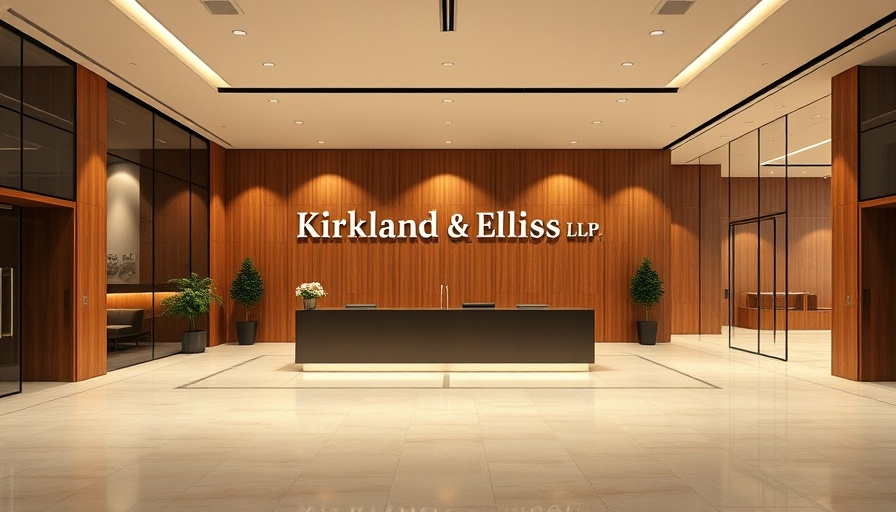
The Unfolding Tension: Trump’s Law Firm Sanctions
The ongoing legal confrontation between U.S. President Donald Trump and selected law firms has raised significant constitutional concerns. This situation escalated recently when Susman Godfrey—a firm which defended Dominion Voting Systems in high-profile defamation cases—filed a lawsuit following Trump’s executive sanctions against it and other firms. Allegations claim that these sanctions are not merely administrative but a personal vendetta from the President aimed at firms that have challenged his administration.
The Stakes of Political Retaliation
The crux of Susman Godfrey's lawsuit hinges on the notion that such executive orders represent a dangerous precedent. If not challenged, it could set a disturbing trend for future administrations who may exploit similar powers for partisan gain.
Other Firms Take a Different Approach
In a contrasting reaction to Trump's actions, five other prominent law firms are reportedly making pro-bono agreements, striving to form alliances in response to what they view as the current climate of political and legal intimidation. These concessions aim to bolster their reputations and shield them from potential backlash during uncertain political times.
How Legal Practices Are Evolving
This complex situation not only engages legal professionals in a raw political environment but also touches on broader implications affecting how law firms operate. For many firms, reputational risk management is becoming a vital component of their business strategy. Pro-bono work and visible accounts of ethical commitment are emerging as essential strategies to enhance public trust and resist punitive actions.
Constitutional Implications and Future Challenges
The Susman Godfrey case will likely challenge the limits of presidential power under constitutional law. The implications could ripple beyond legal circles, stirring discussions about what constitutes lawful executive action. This case sets the stage for a broader conversation about the interplay between politics and jurisprudence.
The Potential for Legislative Change
The fallout from such lawsuits typically invites a re-evaluation of legislative measures concerning executive powers. If courts begin to circumscribe the authority of executive decisions based on partisan retaliation, this could herald significant alterations in the structure of legal oversight over executive orders.
What This Means for the Legal Industry
For the legal industry, the conflict exemplifies the need for lawyers and firms to navigate not only their legal boundaries but also their public profiles carefully in an increasingly polarized environment. This situation serves as a crucial reminder of the resilience required for law firms as they advocate for clients in the public sphere.
Guarding Against Future Risks
As law firms brace for further political ramifications, a robust risk management strategy will be imperative. Techniques such as enhancing public relations efforts, collaborating through coalitions, and actively participating in civic engagement could become essential components for legal practices moving forward.
Conclusion: Moving Forward in Uncertain Times
The tension between law firms and the Trump administration underscores broader concerns regarding political interference and its potential impact on legal practices. By understanding these overarching themes, legal professionals and firms will be better equipped to navigate the tumultuous landscape ahead and advocate effectively for justice and ethical standards.
 Add Row
Add Row  Add
Add 



Write A Comment